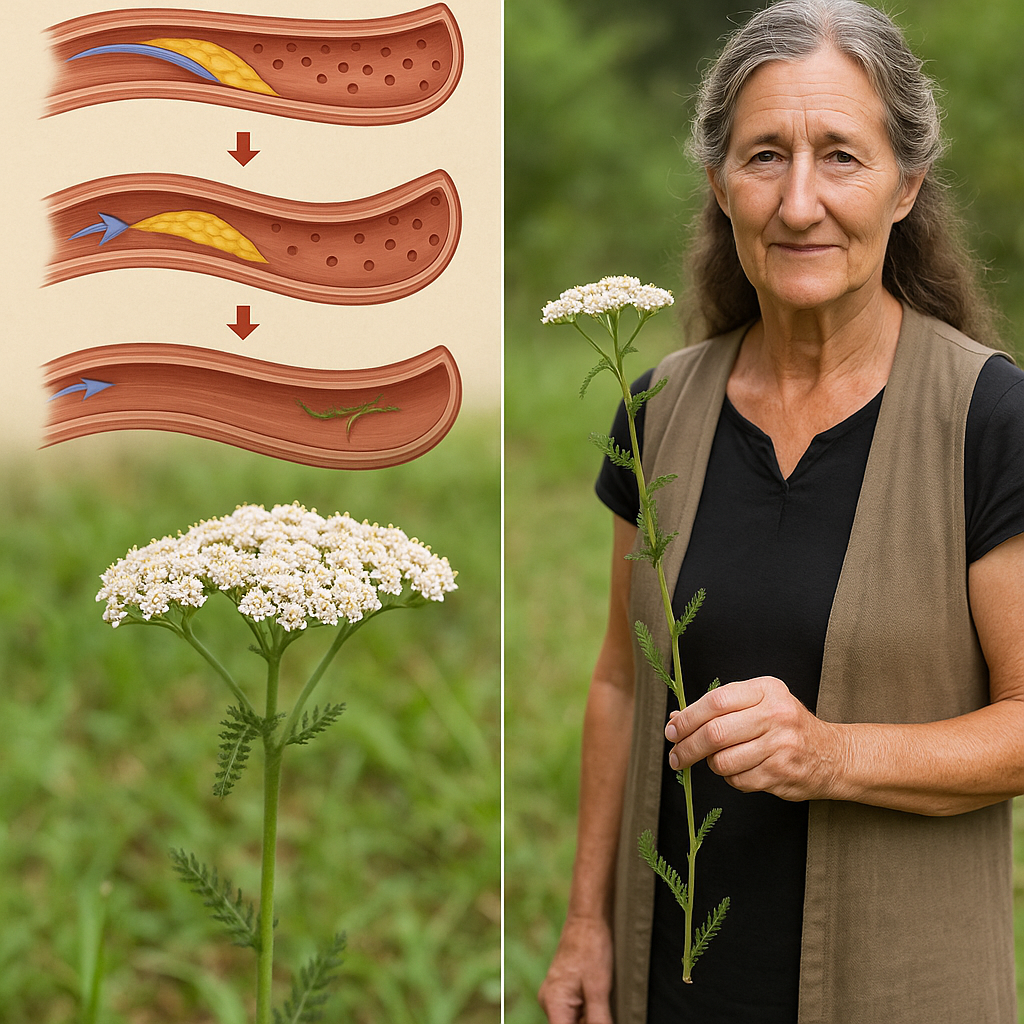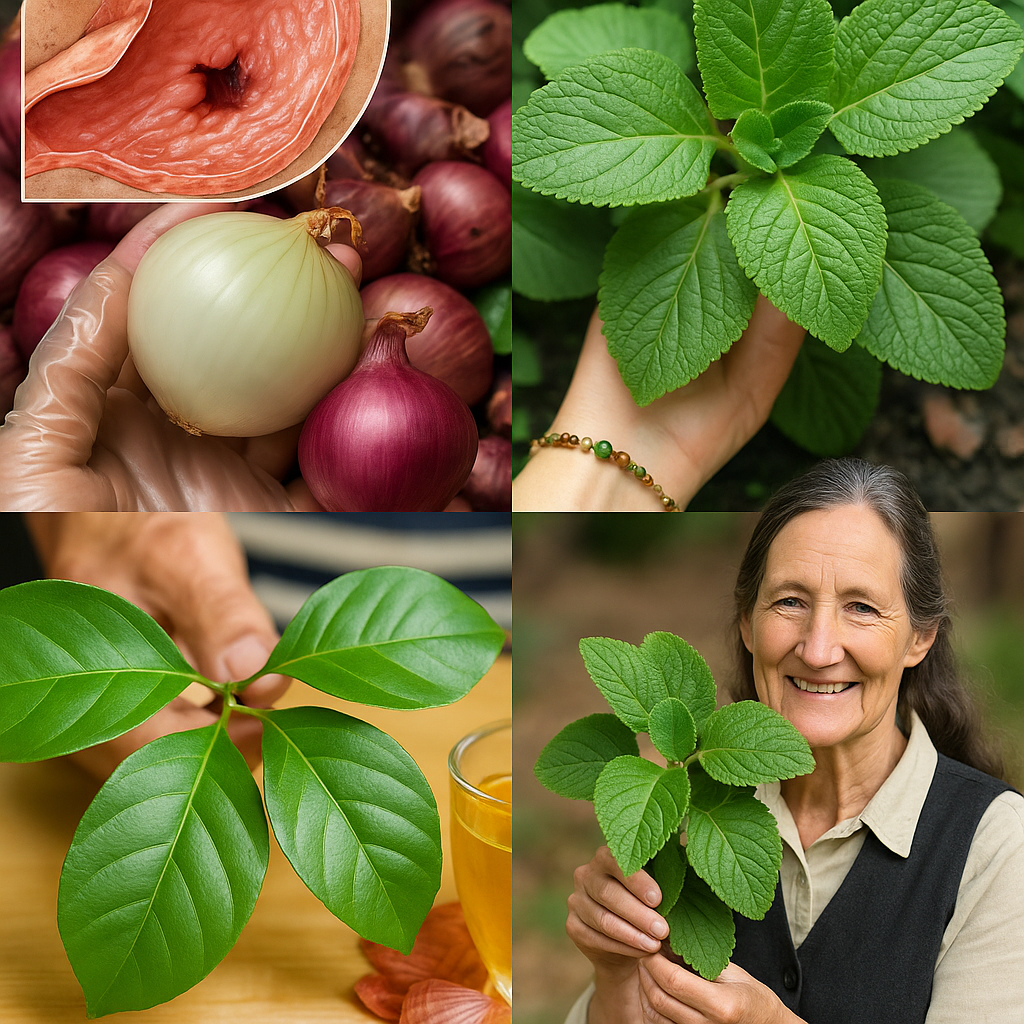With a rich history dating back to ancient Greece and used widely by Native American healers, yarrow is a perennial herb renowned for its ability to heal wounds, reduce fevers, and balance the body. Beyond its folklore fame, modern herbalists continue to rely on yarrow for its anti-inflammatory, antimicrobial, circulatory, and hormonal-balancing properties.
Let’s dive into 15 science-backed and traditional benefits of this underrated yet incredibly powerful plant — plus simple ways to use yarrow at home.

🌟 15 Remarkable Benefits of Yarrow
🩹 1. Speeds Up Wound Healing
Yarrow is a natural astringent and coagulant. When applied topically, it can stop bleeding, promote tissue repair, and prevent infection.
🍽 2. Eases Digestive Discomfort
Drinking yarrow tea can reduce gas, bloating, and indigestion by stimulating bile production and soothing gut inflammation.
🌸 3. Alleviates Menstrual Cramps
With its antispasmodic and hormone-balancing properties, yarrow can reduce menstrual pain, heavy flow, and cycle irregularities.
🌡 4. Reduces Fever
As a diaphoretic, yarrow promotes sweating, helping the body release excess heat and fight off infections like colds or flu.
🔥 5. Anti-Inflammatory for Joints and Skin
The flavonoids and tannins in yarrow can reduce inflammation, making it effective for arthritis, eczema, or inflammatory skin flare-ups.
🩸 6. Lowers Blood Pressure Naturally
Yarrow helps relax blood vessels and improve circulation, which may aid in managing high blood pressure.
💓 7. Boosts Circulation
By dilating capillaries and reducing blood viscosity, yarrow supports heart health and prevents circulatory stagnation.
🧴 8. Antiseptic for Skin Infections
Yarrow contains antibacterial and antifungal compounds, making it ideal for cleaning wounds, cuts, and burns.
🌬 9. Clears Respiratory Congestion
As an expectorant, yarrow helps break up mucus in the lungs, aiding in the relief of bronchitis, colds, and asthma.
🚽 10. Supports Natural Detoxification
Yarrow promotes both sweating and urination, helping the body eliminate toxins, excess salt, and fluid retention.
🧘 11. Calms the Nervous System
Yarrow tea has mild sedative properties that relieve anxiety, tension, and mild insomnia, promoting mental clarity and relaxation.
🛡 12. Enhances Immune Defense
Packed with antioxidants, yarrow can strengthen the immune system and reduce vulnerability to colds and infections.
✨ 13. Improves Skin Appearance
Used in toners or salves, yarrow helps tighten pores, reduce acne breakouts, and soothe rashes or eczema.
🦵 14. Helps with Varicose Veins
Due to its ability to improve blood flow and reduce inflammation, yarrow can ease discomfort and reduce the appearance of varicose or spider veins.
⚖️ 15. Supports Weight Balance
Yarrow gently stimulates metabolism and promotes the elimination of excess fluids, aiding natural weight regulation when combined with a healthy diet.

🛠 How to Use Yarrow
✅ Yarrow Tea (Internal Support)
Use for: digestion, immunity, fever, menstrual pain
• Steep 1 tsp dried yarrow flowers in hot water for 10–15 minutes
• Drink 1–3 cups per day, depending on purpose
✅ Yarrow Tincture (Concentrated Relief)
Use for: cramps, digestive issues, anxiety
• 10–15 drops under the tongue or in water, up to 3x/day
• Easy to travel with and long shelf life
✅ Poultice (Topical Wound Healing)
Use for: cuts, bruises, insect bites
• Crush fresh yarrow leaves/flowers into a paste
• Apply to affected area and cover with clean gauze for 20–30 minutes
✅ Yarrow Salve or Balm
Use for: eczema, rashes, minor burns
• Infuse dried yarrow in olive or coconut oil for 2 weeks
• Strain and mix with beeswax to make a healing balm
✅ Essential Oil (Aromatic & Therapeutic)
Use for: massage or skin care
• Dilute with a carrier oil (e.g. jojoba) and apply to joints or temples
• Add to baths for muscle relaxation and detox support
⚠️ Precautions Before Use
• Avoid during pregnancy or breastfeeding – may stimulate uterine contractions
• Those allergic to ragweed, daisies, or other Asteraceae plants may react to yarrow
• Always consult your doctor if you are on medications, especially blood thinners
• Avoid long-term daily use without breaks — cycle usage to prevent overuse
🌼 Conclusion: A Humble Herb with Ancient Power
Yarrow may look like just a wildflower, but its therapeutic range is vast — from supporting your heart and digestion to healing wounds and calming nerves. Whether you’re a seasoned herbalist or a curious beginner, yarrow is one of the most accessible and powerful herbs to keep in your wellness toolkit.
🫖 One plant. Many solutions. Trust the wisdom of nature.


